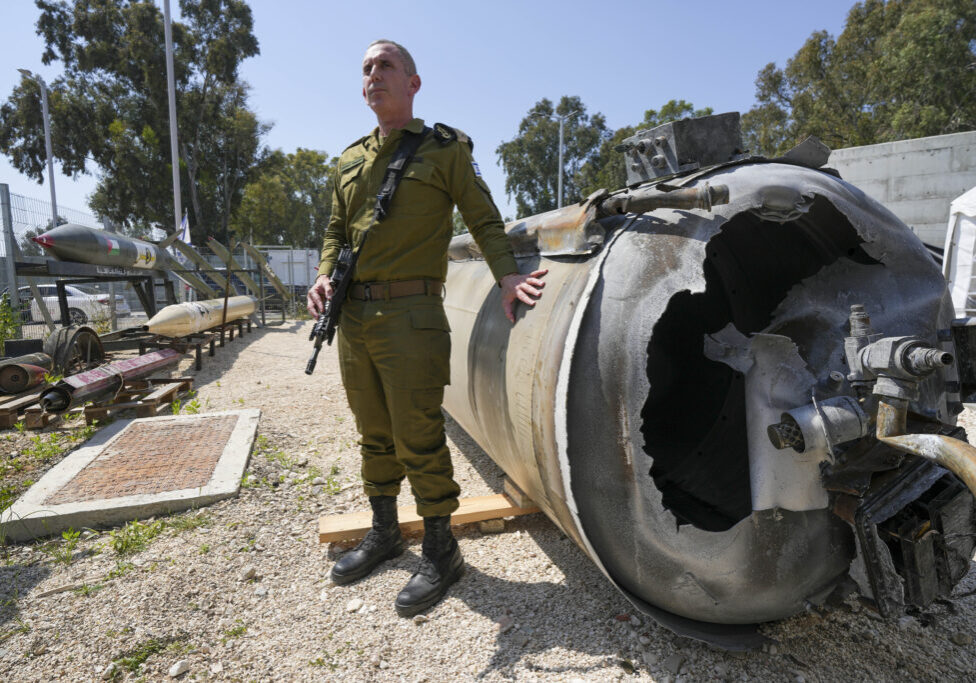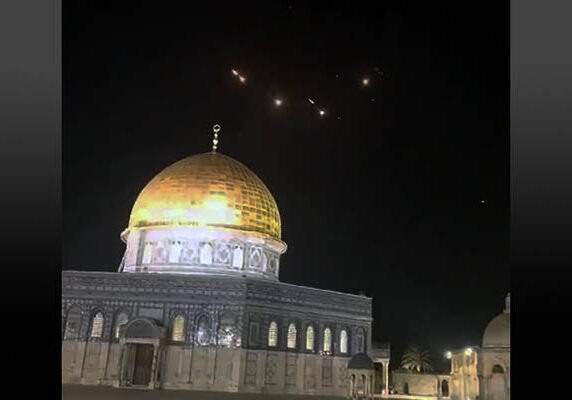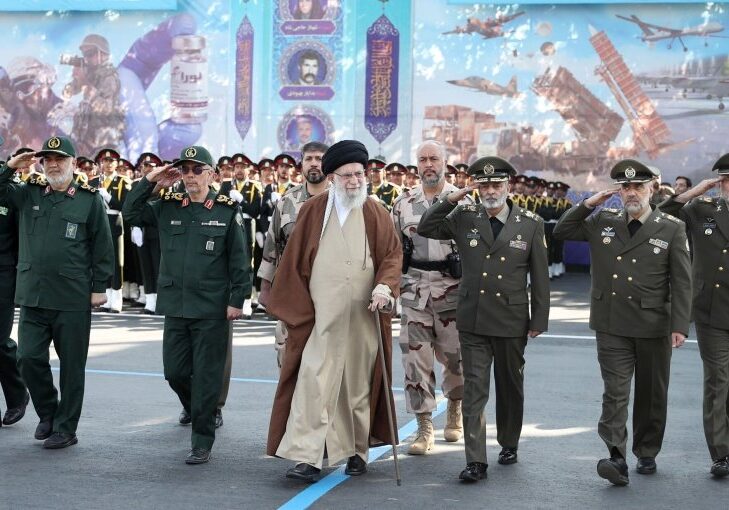Australia/Israel Review
Noted and Quoted – August 2015
Aug 5, 2015 |
BDS blast
Columnist Rowan Dean blasted the Boycott, Divestment and Sanctions (BDS) campaign against Israel as “anti-Semitic” and a “grotesque fraud”, pointing out its hypocrisies.
Hypocrisies include boycotting “Jewish businesses… and even a Jewish theatre” in this country “on the pretence of supporting the Palestinian ‘struggle’.”
He lambasted famous BDS supporters like musician Roger Waters who “rails against the ‘conspiracy’ of Jews in Hollywood [and] claims his concern for the ‘Palestinian children'” but is silent “about…Palestinian (and other Arab) children being massacred by the truckload all around the Middle East and Africa by Islamists.”
Moreover, he noted, in “deliberately boycotting Israeli businesses in the West Bank, supporters of BDS are destroying the lives of the Palestinians they pretend to care for,” Courier Mail (July 6).
Academic attack
Vassar College geology professor Jill Schneiderman related how her attempt to take a group of 27 students on a trip to Israel and the West Bank coordinated with educational institutions there was almost derailed by “opposition from a surprising source: the faculty and students of our own academic institution.”
“Protesters bearing anti-Israel signs stood chanting outside my classroom; students were pressured by their peers to drop the course. My integrity was attacked.”
The BDS campaign raised important questions about academic freedom, including “what are the implications for education when students are pressured to avoid unique and difficult educational opportunities? Is it responsible for educators to support an academic boycott – essentially, a boycott of ideas? Isn’t our mission to teach students to engage with ideas that are different from their own? Vassar’s mission statement asserts that the college ‘nurtures intellectual curiosity’ and ‘respectful debate’… We are in dangerous territory if our ability to even travel for study’s sake to a politically charged region can be blocked by political agendas,” Australian Financial Review (July 7).
Michael’s Message
Federal Labor MP Michael Danby warned Australian Foreign Minister Julie Bishop against making concessions to Iran including diluting travel advisories, permission to build consulates in Sydney and Melbourne, scholarships for Iranian students and an increase in work and holiday visas for Iranians in exchange for a deal on the return of failed Iranian asylum seekers.
“The US State Department’s annual report, released this month, makes clear Iran’s continuing sponsorship of international terrorist groups, particularly Hezbollah (which is also proscribed by the Australian Parliament).”
Australia should heed the lessons from the 1980s, he wrote, when a Libyan cultural centre opened in Melbourne and later in the ’90s when a Syrian consulate opened in Sydney “which (in the era when Syrian troops occupied Lebanon) was mainly used to monitor and subvert the Lebanese community in Sydney…Eventually, both outfits had to be closed down for security reasons,” Spectator (July 11).
What Teheran wants
Foundation for Defence of Democracies analyst Emanuele Ottolenghi also warned Bishop that “viewing Tehran as a potential ally in the fight against the IS is a mistake based on a misreading of Iran’s core interests and the ideology that drives them. Iran cares only about its regional ambitions – and it will fight anyone standing in its way.”
Although Iran may view “IS as a threat to its heartland, Iran has a long history of dialogue and co-operation with Sunni radicals. Even the most fanatically anti-Shiite groups have worked with Tehran on more than one occasion. Conventional wisdom assumes a bitter religious enmity between them and the Sunni radicals they are fighting in Iraq. In fact, Iran is unscrupulous in its choice of partners. What guides Tehran is not a rivalry against Sunni radicals over some transcendent truth.”
Thus Iran has backed Sunni Hamas “in its ongoing attrition war against Israel… The Sunni-Shiite divide plays no role in the face of an ideological foe like Israel.”
In Afghanistan, “Iran did not hesitate to supply the [Sunni] Taliban insurgency [there] with weapons to fight Western forces” and recently, Tayeb Agha, head of the Taliban’s political office in Qatar, visited Teheran which “offers another example of how easily and unscrupulously Iran can switch sides, based on its desire to advance its own causes, rather than the one Western leaders ascribe to its readiness to fight IS,” Canberra Times (July 12).
Save the propaganda
Since the outbreak of last year’s Gaza war, the Herald Sun has run four op-eds from the charity Save the Children on Gaza reconstruction.
The latest, on July 8, saw the organisation’s Dave Hassell recycling familiar themes.
He reasonably lamented the “snail’s pace” of reconstruction, but less reasonably demanded an end to the Gaza blockade and questioned its justification.
“The blockade…was purportedly put in place to prevent terrorism and rocket attacks. However, it…[does] so much more than that, limiting access to basic necessities, stripping Palestinians of their fundamental rights and eroding the hopes of those living in Gaza.”
The blockade is a direct result of Hamas’ rockets, not the other way round and Hassell should have named and shamed Hamas for starting the war.
Hassell also managed to avoid condemning Hamas for firing barrages of rockets at Israeli civilians – or for continuing the conflict for 51 days before agreeing to the same ceasefire it rejected at the war’s commencement.
And since the indisputable record of Hamas aggression against Israel was scarcely acknowledged, Hassell didn’t bother explaining why terror attacks wouldn’t increase if the blockade happened to be lifted.
He also somehow neglected to mention the UN’s own admission that Hamas’ and the Palestinian Authority’s behaviour are the main hurdles preventing reconstruction, not the blockade.
In June, the Herald Sun reported that Pakistan ordered the Save the Children’s offices “sealed” for “activities against the national interest”.
It has since reopened, but no op-ed has run from Save the Children condemning Pakistan.
Perhaps that’s because, like in Gaza, any real criticism would result in the office’s permanent closure.
Limited vision
Speaking to ABC Radio’s Fran Kelly on the situation in Gaza, Conny Lenneberg, World Vision International’s Regional Leader for the Middle East, also pushed for an end to the blockade, labelling it the “fundamental cause of poverty in Gaza”, adding, “we believe that both the conflict and the occupation there is robbing Palestinian and Israeli children of any hope for the future.”
Kelly said Lenneberg worked in Banda Aceh after the Tsunami “but I get a sense of shock talking to you about the situation in Gaza and the almost hopelessness of it… in the year since this 50-day war stopped. Is that fair to say?”
“It is really fair to say,” Lenneberg answered, and then recounted her visit to a house where a bomb hit and three children had died and “I could see the bloodstains still there and literally pieces of children’s bodies on the walls.”
No attempt was made to explore the questions raised by this horrific imagery. Did this family possibly ignore warnings by the IDF to evacuate? Was this the home of a Hamas commander or otherwise a legitimate military target? We don’t know and Kelly didn’t ask.
Lenneberg also questioned the “humanitarian commitment of our international community because promises were made to provide the needed resources to rebuild Gaza… and very little of what was promised by governments and multilaterals has actually been delivered.”
The fact is, donors have admitted they are reluctant to pay up without sufficient guarantee Hamas won’t misappropriate the aid – a fact not mentioned by Lenneberg, ABC Radio National “Breakfast” (July 8).
An editorial on the biased UN Human Rights’ Council report into the Gaza war accused it of failing to “lay the blame for starting the war squarely where it belonged – with Hamas and its indiscriminate barrage of unguided rocket and mortar attacks on Israeli population centres.”
It noted, “Israel [had] said it would cease its bombardment if the…[rockets stopped]. Yet…Hamas persisted…[seeing] value…in the death toll and international criticism of Israel…causing devastation,” Australian (June 26).
Plenty of victims, little context
ABC correspondent Sophie McNeill’s coverage of NGO Save the Children’s study into the lingering psychological impact on children of the Gaza war ran on TV, radio and as an online article (July 6). It was all about victims, not explanations – which meant it lacked context.
On TV, ABC newsreaders introduced her story saying, “Israel responded to Hamas rocket attacks from Gaza with devastating force” but then qualified this by saying “the cause of this conflict is still bitterly disputed.”
The report looked at 11-year-old Ahmed and his family, showing him playing in the rubble, explaining how his home was destroyed, and lamenting the loss of his toys and computer.
No explanation was given that children like Ahmed suffered because Hamas repeatedly refused ceasefires Israel offered it from the 50 day war’s outbreak. Nor was it explained that he still suffers because Hamas deliberately refuses to expedite reconstruction work by honouring its post-war agreement with the UN to allow the Palestinian Authority to oversee building materials entering Gaza.
Detailing Israel’s “6,000 airstrikes” and firing of “over 50,000 tank and artillery shells”, file footage showed Israel hitting targets in Gaza but no reciprocal footage of Hamas firing rockets into Israel.
McNeill included the post-war situation of an Israeli family in Sderot, remarking in her online written report how “there is no obvious sign of damage here.”
Of course not, because in Israel reconstruction work commenced immediately after the war ended, while in Gaza, Hamas exploits destitute Palestinians for propaganda purposes.
On TV, after the visit to Sderot, McNeill refocused attention on Gaza, telling viewers that “it’s rebuilding that the people of Gaza need now,” and there the story ended with the audience none the wiser concerning why rebuilding hasn’t occurred.
The online report included a quote from Hamas Ministry of Foreign Affairs spokesman Ghazi Hamad conveniently blaming the war on “the occupation”. McNeill did not explain what occupation, given that Israel withdrew completely from Gaza in 2005.
McNeill’s radio report omitted Israeli victims and the Hamas spokesman but did feature the IDF’s Peter Lerner saying, “Hamas have to realise the responsibilities that they have towards the people of Gaza…Why did they need this conflict last year? We didn’t need it, we didn’t want it.”
View from the ground
Unlike many Middle East correspondents who file reports about Syria and Iraq from the safety of Amman, Beirut and Israel, Israeli analyst Jonathan Spyer makes regular visits to both, bringing back incisive reports.
In a recent feature Spyer laid out in stark terms how sectarian the war in Iraq has become, with no one fighting as an “Iraqi”.
In Baghdad “the form that the defence against the Sunni jihadists is taking is also plain. At every intersection, on every wall, on every corner, the banners of Iraq’s Shia militias blare out their allegiance. The slogan ‘At your service, O Hussein’ – referring to the greatest martyr of the Shi’ites, killed by the Sunni Ummayads at the battle of Karbala in AD 680 – is everywhere … It is there, too, amid the ubiquitous militia billboards, alongside pictures of ayatollahs Ruhollah Khomeini, Ali Khamenei, Mohammed al-Sadr and Ali al-Sistani.
“The same Shia sectarian slogan can be glimpsed on the wall of the Iraqi Army checkpoint on the road from the airport. At your service, o Hussein. That is to say, the defence of Baghdad against Islamic State is not taking place in the name of Iraq. The men doing the fighting and dying are there as Shi’ites. This applies even to many or most of those wearing the uniforms of the official Iraqi Security Forces. But it applies a hundred-fold more clearly to the organisations that are bearing the brunt of the actual fight against the Sunni jihadists… the Shia militias.”
Tellingly, “none of the Shia fighters…mentions the possibility of disbanding the Popular Mobilisation if and when Islamic State is defeated,” Australian (July 4).
Shallow support
Guardian Middle East correspondent Martin Chulov explained that IS’ support from Sunni communities is borne out of the desperation of “communities who have been totally disenfranchised [in Syria and Iraq] by a failed political process, who have seen ISIS come along as some kind of a juggernaut that can represent their interests. Despite the fact that they don’t buy in to their ideology or share their views, it’s something that can actually give them a vehicle to push for some kind of better conditions or posturing against the ancient foe, Iran,” ABC Radio “PM” (July 21).
All roads lead to Teheran
ANU Professor Amin Saikal wrote that “the US and its allies have not been able to come up with…a military campaign that would be part of a comprehensive political strategy that could deal with those IS causes that defy military solutions.”
Saikal, who has long called for an Iran-US détente, is being disingenuous. The US’ military ally against IS is none other than Iran, whose militias are fighting IS under American air cover.
Moreover, it was Baghdad’s Shi’ite-dominated government in cahoots with Iran that used the militias to terrorise the very same Sunni Iraqis now supporting IS.
The solution to the bloodshed, Saikal wrote, “is an interlocking regional and international consensus among the key players – Saudi Arabia, Iran and Turkey – as well as the US and Russia, whose backing of Iran and Syria’s Assad regime has given it strong leverage, to deal collectively with not only IS, but a host of issues that have aided IS.”
Considering that Iran boasts it has effective control over Baghdad, Beirut, Damascus, and Sa’ana, it doesn’t take a genius to guess what kind of “consensus” Saikal envisages.
Saikal also nominated other factors exploited by IS as a rallying cry, including “Israel’s occupation of the Palestinian lands, East Jerusalem as the third holiest sites of Islam in particular.”
Bearing in mind that more than 250,000 people have died in Syria, Iraq, Turkey, Egypt, Yemen and Tunisia since the Arab Spring, it’s a little far fetched to attribute IS’ growth to Israel’s actions, Canberra Times (July 10).
“Moderation and reform”, Iranian-style
In a follow up piece, Saikal wrote of “moderate reformist President Hassan Rouhani, [who] won the 2013 Iranian presidential election promising to improve Iran’s dire economic situation, relax political and social controls, and improve Iran’s foreign relations with all countries, without shaking up the foundations of the Islamic regime,” Canberra Times (July 18).
A vital corrective was provided by Wall Street Journal editorial page writer Sohrab Ahmari who stated that “six years since the events of summer 2009, the leaders of the opposition Green Movement, Mir Hossein Mousavi and Mehdi Karroubi, remain under house arrest. Far from calling for their release, Iran’s ‘moderate’ President, Hasan Rowhani, has spoken approvingly of the crackdown on the 2009 protests,” Australian (June 30).
Diplomatic home truths
Wall Street Journal senior writer Bret Stephens defended newly-elected Knesset member Michael Oren, whose account in his book, Ally, on recent US-Israel relations from his stint as Israel’s Ambassador to the US between 2009-13, has come under sustained media attack by Obama Administration-linked officials and sympathisers.
“One of the revelations of Ally is how eager the administration was to fabricate crises with Israel, apparently on the theory that strained relations would mollify Palestinians and extract concessions from Netanyahu. To some extent, it worked: In 2009, Netanyahu endorsed a Palestinian state, an unprecedented step for a Likud leader, and he later imposed a 10-month moratorium on settlement construction, a step not even Labor Party leaders such as Yitzhak Rabin ever took.
“But no Israeli concession could ever appease Barack Obama, who had the habit of demanding heroic political risks from Netanyahu while expecting heroic deference in return.”
Stephens dismissed President Obama’s “constant…boasts that he’s the best friend Israel has ever had… a fairer assessment is that Obama is a great friend when the decisions are easy – rushing firefighting equipment to Israel during a forest fire – a grudging friend when the decisions are uncomfortable – opposing the Palestinian bid for statehood at the UN – and no friend at all when the decisions are hard – stopping Iran from getting a bomb,” Australian (July 1).
Tags: Australasia






